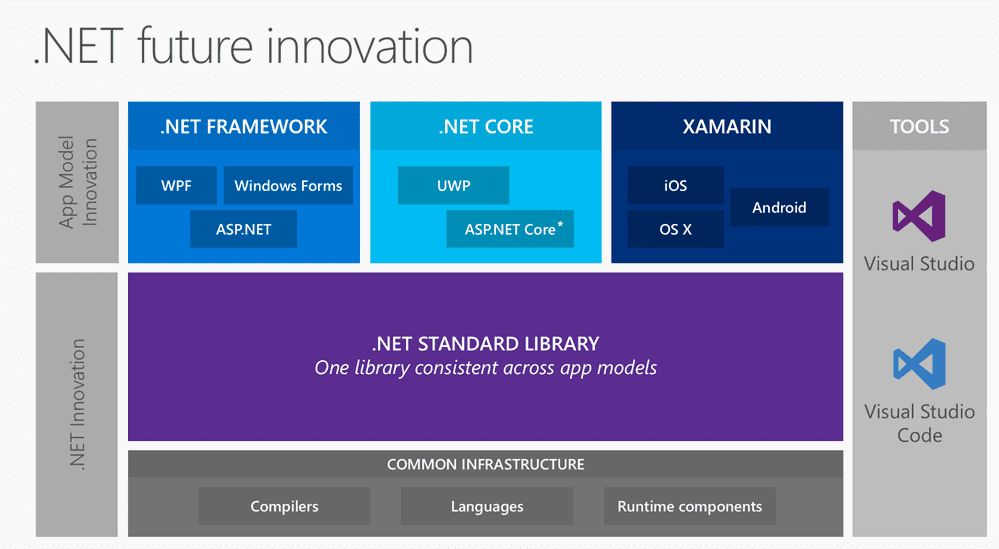
Microsoft recently shared their .NET language strategy. Microsoft mentioned that they are sharing it to provide that additional context for the principles they use to make decisions for each language. Read the excerpts from Microsoft’s blog post below.
C# is one of the most widespread programming languages on the planet and millions of people use it. Using C#, you can develop across games in Unity, mobile apps in Xamarin, web apps in ASP.NET, business applications on Windows, .NET Core microservices on Linux in Azure and AWS, and much more.
Strategy for C#:
We will keep growing C# to meet the evolving needs of developers and remain a state of the art programming language. We will innovate aggressively, while being very careful to stay within the spirit of the language. Given the diversity of the developer base, we will prefer language and performance improvements that benefit all or most developers, avoiding over-focusing on a given segment. We will continue to empower the broader ecosystem and grow its role in C#’s future, while maintaining strong stewardship of design decisions to ensure continued coherence.
Visual Basic might not be as popular as C#, but it is still used by hundreds of thousands of people. Using Visual Basic WinForms, developers are building business applications in Windows, and a few are building websites, overwhelmingly using ASP.NET Web Forms.
Strategy for Visual Basic:
We will keep Visual Basic straightforward and approachable. We will do everything necessary to keep it a first class citizen of the .NET ecosystem: When API shapes evolve as a result of new C# features, for instance, consuming those APIs should feel natural in VB. We will keep a focus on the cross-language tooling experience, recognizing that many VB developers also use C#. We will focus innovation on the core scenarios and domains where VB is popular.
F# is one of the most loved languages available in the market even though it doesn’t quite measure up to the rich and polished experience of C# and VB. F# is used by tens of thousands of developers and they generally use it around web and cloud services, tools and utilities, analytic workloads, and data manipulation. It has some groundbreaking language features such as type providers, active patterns, and computation expressions.
Strategy for F#:
We will enable and encourage strong community participation in F# by continuing to build the necessary infrastructure and tooling to complement community contributions. We will make F# the best-tooled functional language on the market, by improving the language and tooling experience, removing road blocks for contributions, and addressing pain points to narrow the experience gap with C# and VB. As new language features appear in C#, we will ensure that they also interoperate well with F#. F# will continue to target platforms that are important to its community.
Read their full post -.







